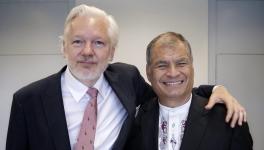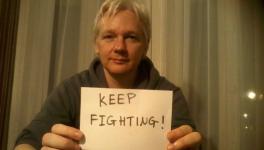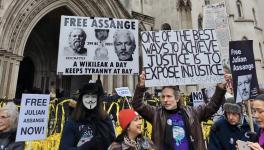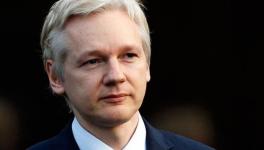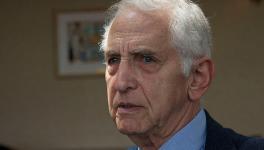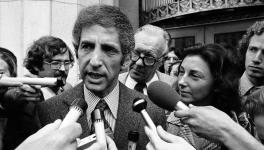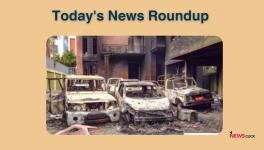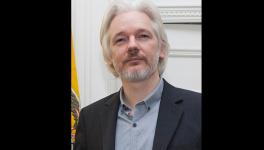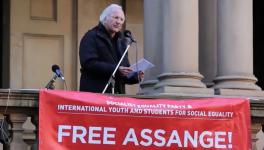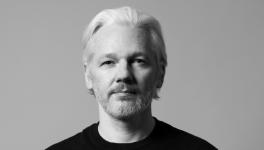Documentary 'Ithaka': The Fight to Free Julian Assange
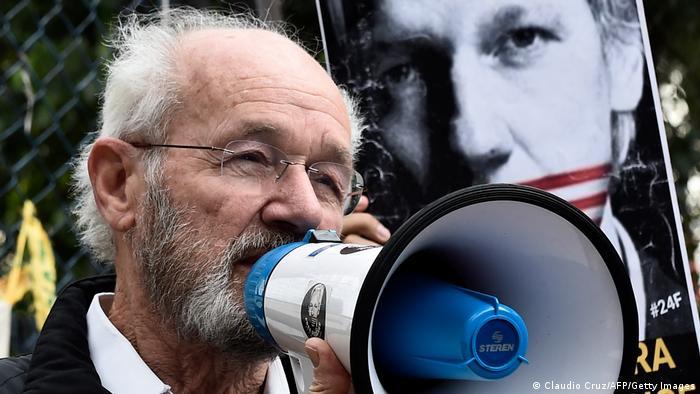
John Shipton, Julian Assange's father, campaigns for his son's freedom
The first scene of the documentary "Ithaka," which celebrated its German premiere at the Human Rights Film Festival Berlin, shows police carrying WikiLeaks founder Julian Assange out of the Embassy of Ecuador in London and into a high-security vehicle on April 11, 2019.
Dodging an international arrest warrant, Assange had spent seven years without leaving the London embassy. But he was arrested shortly after Ecuadorian authorities revoked his political asylum due to a set of disputes.
Since then, Assange has been jailed in Belmarsh, one of the UK's highest security prisons.
Facing 175-year sentence for espionage
WikiLeaks was launched in 2006, and the Australian editor's platform gained international attention four years later, following the publication of a trove of leaks provided by whistleblower Chelsea Manning, a former US Army intelligence analyst. The classified material, which included videos, suggested that the United States was hiding proof of war crimes committed in Afghanistan and Iraq.
Assange was initially charged with conspiring to hack into a government computer — a charge that comes with a maximum five-year sentence. But in May 2019, he was also charged with violating the Espionage Act. The new indictments mean the WikiLeaks publisher now faces a 175-year sentence.
Several human rights organizations have criticized those charges, saying they are an attack on freedom of the press, guaranteed in the US by the constitution's First Amendment.
But before being tried for those charges, the US needs to obtain Assange's extradition from the UK.
"Ithaka," directed by Ben Lawrence, follows the campaign to free Assange ahead of the extradition proceedings.
At the center of the film are members of his family, including Stella Moris, Assange's spouse and mother of the two young children they conceived together during his time in the Ecuadorian Embassy, as well as Assange's father, John Shipton, who leaves his home and family in Australia to fight for his famous son's release.
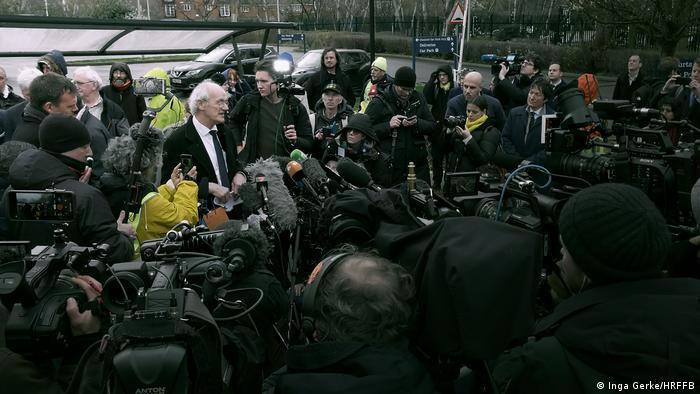
Shipton surrounded by the press
Shipton, a house builder and anti-war activist, was not involved in Julian Assange's life as a child, but reestablished contact when his son became an adult. Documentary filmmaker Ben Lawrence attempts to better understand their relationship, but Shipton refuses to dwell on the past, preferring to focus on the main issue: freeing his son.
"I don't much like the media, but it seems as though this is an avenue where I can contribute," he says in the film.
Present in Berlin for the German premiere of the film at the Human Rights Festival, Shipton also came to DW's news studio for an interview, where he summarized what he hopes the Australian government will achieve in his son's case, as they are now holding private talks with the Biden administration.
"I would hope they ring me up and say, 'Can you go to the airport and pick up Julian?' — that's my practical hope," he said, adding that he does not see it as his role to personally negotiate with US Department of State.
A public narrative to discredit Assange
Beyond Julian Assange's family campaigning for his release, the documentary also features another important voice of authority, Nils Melzer, then UN Special Rapporteur on Torture and Human Rights Chair at the Geneva Academy, who was contacted by Assange's legal team to investigate the case.
As Melzer says in the film, his initial reaction to the team's request for protection was, "no, I'm not going to get into this." But he later realized that this was an emotional reaction based on prejudice he wasn't even aware he had.
"Why am I admitting to my prejudice? Because I think all of us had them at some point," Melzer says in "Ithaka." "Because this is the public narrative that has been spread in the media for 10 years." And no one who hasn't been in close contact with Assange "has been able to actually see how much deception there is."
Assange was accused of rape in Sweden in August 2010. He however assumed that if he went to the Scandinavian country to face the charges, he would ultimately be extradited to the US from there.
Meanwhile, Melzer's 2019 investigation into the rape allegations led him to come to the conclusion that evidence was manipulated for political reasons. The Swedish legal proceedings against Assange were dropped in November 2019.
Freedom of the press
For the human rights expert, the US case against the WikiLeaks publisher "is a huge scandal and represents the failure of Western rule of law. If Julian Assange is convicted, it will be a death sentence for freedom of the press."
Even though risks related to Assange's mental health and of suicide have been assessed, he remains imprisoned in Belmarsh. The extradition proceedings are still ongoing.
On October 13, the European Parliament announced that Assange was among the finalists for its Sakharov Prize for Freedom of Thought, awarded to individuals and organisations defending human rights.
Such support around the world is one thing that keeps Assange going, his father John Shipton told DW, adding that he gathers that his son still has a sense of hope, "because he's still with us. And without hope we disappear off the Earth very quickly."
The Human Rights Film Festival Berlin, where "Ithaka" can be seen in theaters and as a stream, runs until October 23, 2022.
Edited by Brenda Haas
Get the latest reports & analysis with people's perspective on Protests, movements & deep analytical videos, discussions of the current affairs in your Telegram app. Subscribe to NewsClick's Telegram channel & get Real-Time updates on stories, as they get published on our website.









